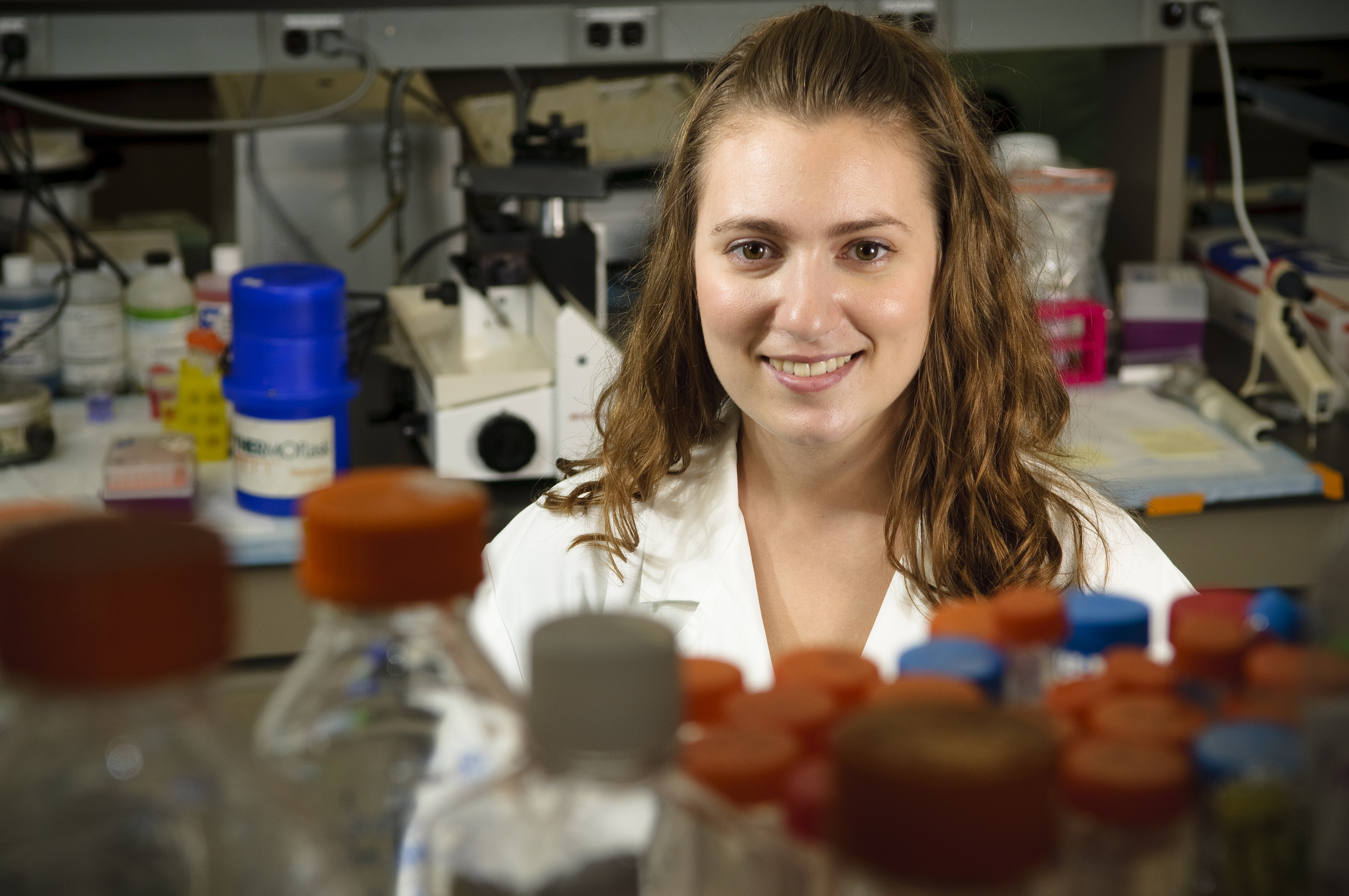A First-Time Lead Author Shares Her Thoughts on Getting Published
By Alisa Kim
“There’s no great writing, only great rewriting,” said U.S. Supreme Court Justice Louis Brandeis. Jessica Jordão, a PhD student training in the labs of Dr. Isabelle Aubert and Dr. Kullervo Hynynen, director of imaging at Sunnybrook Research Institute, learned this lesson firsthand with the recent publication of her paper. After numerous revisions and back-and-forth sessions with reviewers, the paper—on which she is the first author—was accepted and published last month in PLoS ONE, an online journal of the California-based Public Library of Science. “For Jessica, this first paper is a great achievement,” says Aubert. “It represents close to three years of work from beginning to end. This publication represents her official authorship ‘birth date’—an important milestone in Jessica’s career.”
Between her research, coursework and planning a spring wedding, it has been a busy year for Jordão. Here, she reveals what she discovered about the process of getting a paper published, including what to expect next time.
What is your background and research focus?
I took biochemistry as an undergraduate student at the University of Waterloo. I started in a master’s program at the department of laboratory medicine and pathobiology at U of T, and last summer I transferred to the PhD program. The focus of my thesis is on the use of ultrasound technology to deliver a therapeutic agent to the brain in a preclinical model of Alzheimer’s disease.
When did you find out your paper was accepted and what was your reaction?
I found out around mid-April that it was accepted. I was really excited, and it felt so good because it took a lot of work to get that paper out. I worked so hard on this—going to conferences and presenting it— and we went through so many drafts of the paper. It was such a great feeling to finally have it published and out there for people to read.
Was there anything you found surprising?
I didn’t expect reviewers to sometimes be as negative as they are. Sometimes they give constructive feedback, but it can sound harsh and negative. I think people who’ve been doing this for a long time get used to it. Over time I may grow a thicker skin. I know every single criticism helped improve the paper, but the negative tone of the reviewers was sometimes hard to take.
Did you receive any guidance from your supervisors?
Both my supervisors strongly feel that as a first author I should be in charge of writing the first draft of the paper and involved in the whole process. Dr. Aubert made sure that I was the one to submit the paper—filling out the online forms and clicking the “send” button. I relied on their expertise a lot [for things like] where to submit and how to write the paper. Even though I’ve read papers, when you go to write your own paper sometimes it’s hard because you spend so much time focusing closely on the project; it’s hard to step back and tell your story appropriately to your audience.
What did you learn about the process?
[Dr. Aubert] always says if you want to achieve something big, aim bigger. Also, when you’re building your paper, you should start with figures that represent the main experimental findings because they tell your story. Write around these figures. Draw the most important conclusion, then go back and introduce the work accordingly.
Is there anything you wish you had known beforehand?
Start writing earlier. The process can be longer than you originally anticipate it to be. Writing once was not so bad, but what followed was tedious. There were revisions and waiting for [the reviewers] to get back to us. We were refining the details of the figures and rewriting until it was concise. And wording is always so important; you have to make sure everything is clear.






